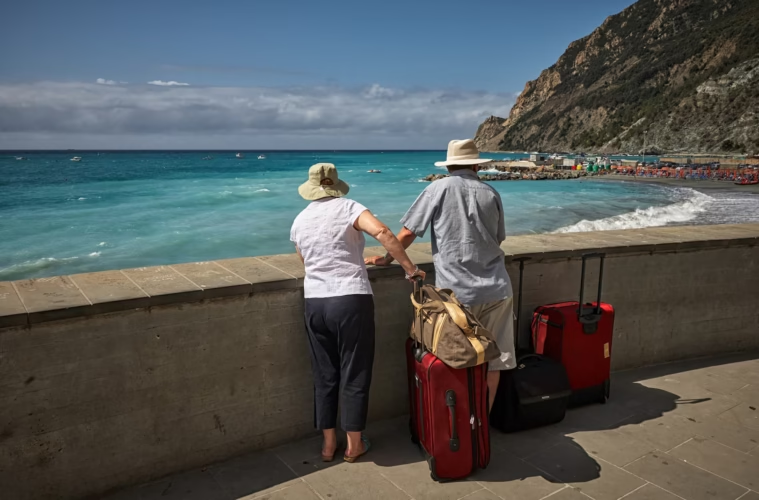Traveling brings excitement, anticipation, and a break from daily routines. It’s a chance to explore new destinations, meet interesting people, and experience fresh perspectives. Still, even the best-laid plans can go off track. From flight delays and lost luggage to sudden weather changes or unexpected cancellations, surprises are a part of travel life.
Remaining calm when things take a detour isn’t always easy, but it can make the entire experience more manageable. Whether you’re traveling for business or leisure, your ability to adapt, breathe, and stay focused determines how much disruption these setbacks really cause.
The key lies in managing expectations, preparing thoughtfully, and responding with a clear mind. Stress may knock on the door, but you don’t have to invite it in.
Prepare Mentally for Imperfections
Many travelers set themselves up for stress by expecting everything to run perfectly. While it’s natural to want a smooth experience, travel involves many moving parts. Flights get canceled, hotel rooms get overbooked, and attractions may close unexpectedly. Preparing your mind to accept change before it arrives builds resilience.
Consider shifting your mindset from expecting perfection to embracing flexibility. When your mindset allows for shifts in plans, minor hiccups don’t turn into full-blown crises. A missed connection might become an opportunity to explore a new city or try a different cuisine.
Practicing mindfulness and focusing on the present moment helps reduce the emotional weight of inconvenience. By adjusting expectations, you make room for adaptability, and that mindset travels well.
Keep a Backup Plan in Your Pocket
Having a backup strategy can offer peace of mind. Save important documents like passports, tickets, and hotel confirmations in both digital and printed formats. Research nearby hotels, transportation options, and emergency contacts before your trip begins.
When something goes wrong, having a secondary plan eliminates panic and gives you something productive to act on. Whether it’s an alternate airline, a different tour provider, or local restaurant you spotted in advance, preparation makes decision-making easier.
While you can’t prepare for everything, a few key contingencies can make you feel far more in control. Travelers who take time to understand their destination’s layout, services, and transportation options are far more likely to find solutions quickly.
Prioritize Communication
If your plans are affected, communicating clearly with service providers is vital. Speak respectfully and stay composed when dealing with airline staff, hotel personnel, or tour operators. Calm travelers often receive better help because they’re easier to assist.
Contact your airline or travel platform as soon as a delay or cancellation appears. Many platforms offer live chat or support through apps, which can save time at busy service desks.
It’s also helpful to inform friends or family if you’re traveling alone. Sharing updates ensures someone knows your location and can assist remotely if needed.
Protect Yourself Financially
One of the easiest ways to limit stress during travel disruptions is to protect your investment. You can buy travel insurance to cover cancellations, lost items, or medical expenses that may arise unexpectedly. Many travelers skip this step, but when things go wrong, insurance becomes a safety net.
Depending on your plan, you may be reimbursed for nonrefundable hotel stays, missed tours, or new flight bookings. This protection helps you make decisions based on safety and comfort rather than cost.
Reading the fine print before purchase ensures that the coverage matches your trip type, destination, and any activities you plan to enjoy. The best insurance policies support both peace of mind and practical needs.
Use Delays to Your Advantage
When plans shift, you’re given the rare gift of unexpected time. Instead of focusing on what you’re missing, consider how to make that time meaningful. Read a book, journal your thoughts, strike up a conversation with a fellow traveler, or walk a few extra steps through an airport terminal to stretch your legs.
Unexpected downtime can become an opportunity to breathe, think, or even discover something new. Airports with art galleries, quiet lounges, or wellness zones offer calm spaces for reflection.
Sometimes the most memorable parts of a trip are the ones you didn’t plan. When you make peace with the pause, you welcome new experiences you might have missed by sticking too closely to a rigid schedule.
Keep Perspective and Practice Gratitude
When faced with travel disruption, a shift in perspective can help keep emotions in check. Remind yourself that delays and detours are temporary. You will reach your destination eventually, even if it takes a little longer or involves a new path.
Gratitude is a powerful counter to frustration. If you’re safe, have food, and still have the means to adjust your plans, you’re already in a better position than many. Being thankful for what’s going right helps reduce the emotional pull of what’s going wrong.
Take a moment to reflect on the privilege of travel. Not everyone gets to explore new places, and keeping that reality in view helps reset your mood when things feel chaotic.
Travel doesn’t always go according to plan, but your mindset and preparation determine whether a small disruption becomes a major crisis. Being mentally ready, having a backup plan, and staying calm when communicating are the foundations of a smoother recovery. With thoughtful planning and a willingness to embrace the unexpected, you can still enjoy your trip despite the occasional twist. The moments that don’t go exactly as expected often become the most meaningful stories in the end.
Published by HOLR Magazine.



